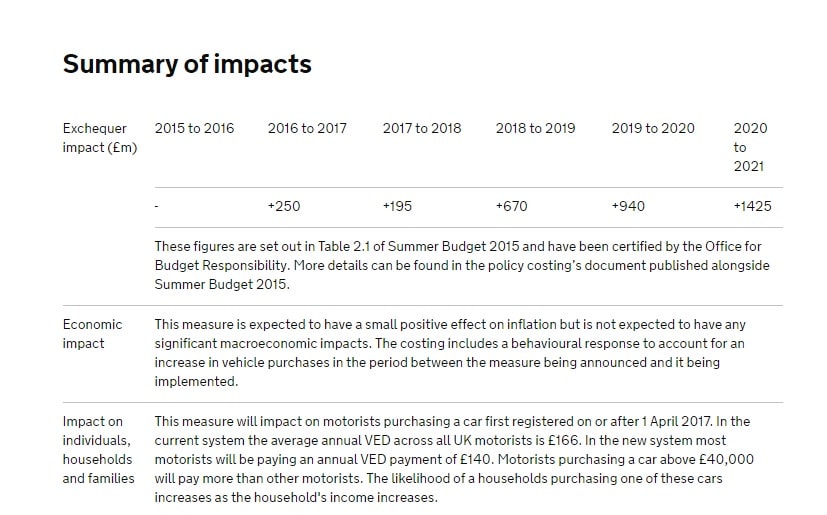Key points of 2017 road tax changes
- Average cost of VED set to increase by £134 per year, per car
- Premium cars over £40k will attract an additional tax
- Treasury expects change to bring in £3bn extra revenue over 3 years
- CO2 levels no longer the only factor so businesses will need to explore other cost-saving measures when renewing leases
- The sooner businesses plan for increases in VED the better placed they will be to manage company car costs
THANK you Mr Chancellor for this package of new VED rules – a great April Fool’s Day present.
On April 1 the car road tax regulations – Vehicle Excise Duty rates – are changing. It means business customers will need to factor in higher costs when reviewing their contract hire requirements that take into account these VED rises.
Average duty on new cars is set to rise from £36 per year under the old system to £170 per year under the new guidelines. An average increase of £134 per car, per year, is a rather hefty pill for any business to swallow, regardless of how many company cars the firm runs.
The good news is that customers with existing lease agreements will not be affected. All cars registered before 01 April 2017 will be unaffected by the VED changes.
The bad news is that replacing even a small fleet of “average” company cars after 01 April could end up costing businesses thousands more per year.
The Treasury anticipated, in drawing up the new tax rates for new cars, that they would bring in £3 billion extra revenue over the next three years (see illustration below). And business cars account for half the new car market.
The idea behind the new tax bands is to encourage drivers into more fuel-efficient cars, yet in a bizarre twist the new regulations may hit these cars hardest.
Under the old system VED was based on CO2 emissions but the new guidelines only take this account in the first year of registration. After the initial 12 months VED will be paid at a flat rate based on the type of fuel used. If the government wants to encourage greener transport policies, penalising the least polluting cars seems a little muddle-headed.
Premium vehicles receive additional tax
There is also an additional tax levied in years two to six on premium vehicles with a list price of more than £40,000 regardless of fuel type. Consequently even an electric vehicle that is currently exempt from VED could potentially incur a £310 charge per year for five years.
The Treasury says that the changes are expected to have a negligible effect on businesses, but the additional £200 million in VED they will receive in the first year alone is clearly going to have a greater impact on the cost of an SME running company cars more than an individual owner.
What are the choices for a business car manager?
Devising a strategy to manage your firm’s company car costs is likely to keep many businesses occupied for the next few months but in the long term it’s probably the only way the increased cost of VED can be mitigated in a sustainable manner.
Get advice on how to mitigate VED cost rises
You can read our special advice article on the forthcoming VED changes – and how to limit your costs. Click here








